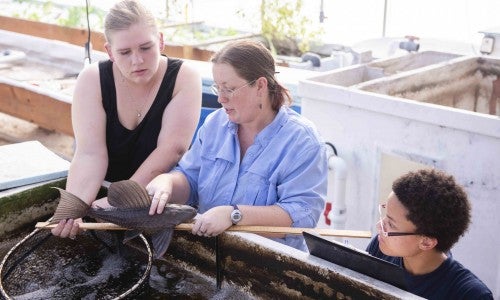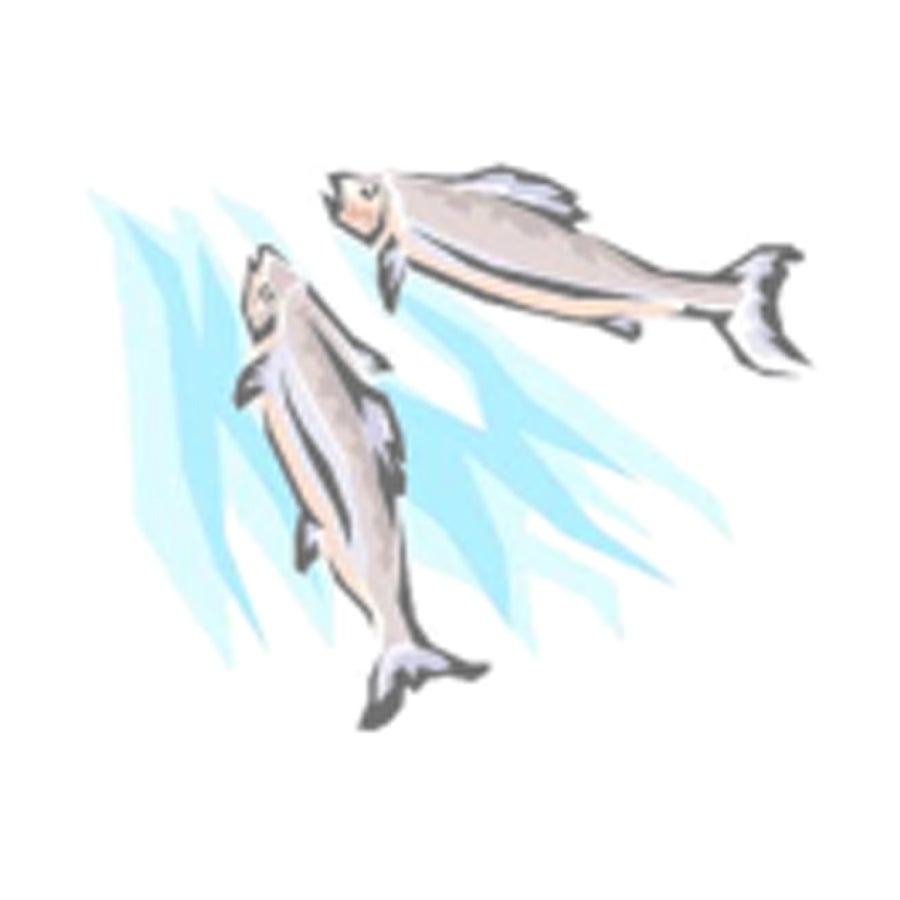Potential Learning Outcomes from SARC Field Trips
General
- What is aquaculture? Hydroponics? A biofilter?
- How does a greenhouse work?
- Where does our food come from?
- What is sustainable agriculture?
- What is a food desert?
- What can be grown using aquaponics?
- Why is aquaponics more sustainable?
- How is aquaponics an ecosystem?
- What is replication using independent systems?
- How do scientists monitoring environmental and water quality parameters?
Hydroponics
- What is hydroponics?
- How do you care for plants in a greenhouse?
- What is a pest? A pathogen? Integrated pest management?
- What is biomass?
- How do farmers plant seeds for growing in water?
- When are various vegetables in season?
- What nutritional deficiencies can plants have?
- How do you fertilize in hydroponics/aquaponics?
Aquaculture
- What is aquaculture?
- How does a recirculating aquaculture system (RAS) work?
- How do you properly care for fish? What is fish husbandry?
- What water quality are needed for various fish
- How do you tell when a fish is sick?
- Can you raise fish eggs/fry?
- What is the purpose of including the fish?
Outreach Resources
Ecology of Aquaponics (ppt for download) (Google Slides) – This presentation was created by SARC curator Brigette Brinton to use during k-12 field trips to the facility (more information here) or as a brief introduction to aquaponics for collegiate or continuing education courses. It contains a link to a 5-question Kahoot quiz at the end, and includes slides that are intended to be used with the DIY Aquaponics and Ecology of Aquaponics handouts. Please feel free to use these resources, and contact SARC with any questions or feedback!
The Southern Regional Aquaculture Center (SRAC) has two publications on creating small-scale aquaponics systems that could potentially be used in a classroom. These are fairly extensive, functional systems. SRAC 5010, SRAC 4501
Display systems can be a small scale method of showing students about aquaponics. SARC has a very simple 55-gallon display system in the Science Center building, with these posted as placards so that any students who come by can learn about the system. Download this pdf if you would like a text version.
The Southern Regional Aquaculture Center and Northern Regional Aquaculture Center (NRAC) both have many reliable resources about aquaculture and aquaponics.
Texas A&M AgriLife has compiled lists of aquaculture and aquaponics resources from several locations, including SRAC and University of Florida. Their page on diseases is particularly extensive.
Upstart University and Bright Agritech have good aquaponics video series and posted information. Some of their resources are not free, others are not. Student Resource Page
The Aquaponics Source is a good general purpose resource and is a company that can assist with designing your system.
Email us if you’re a local teacher or grower and need more information or help troubleshooting!


